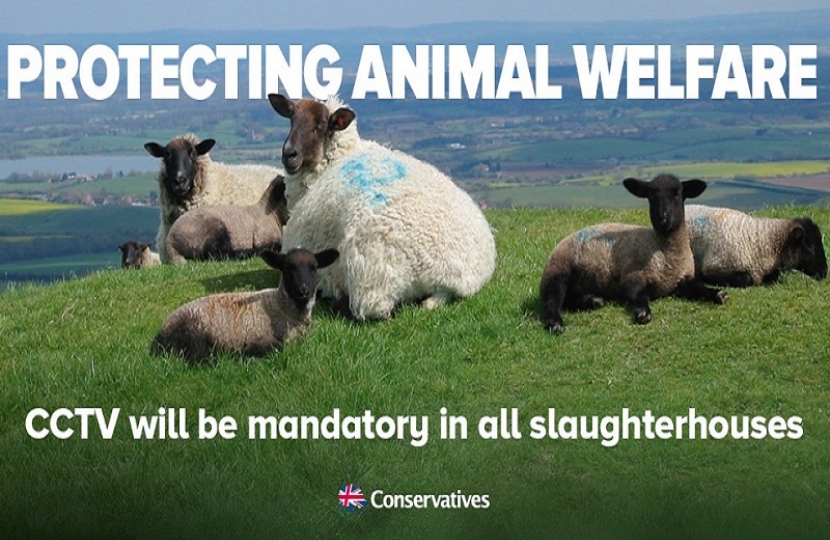
We have some of the highest animal welfare standards in the world, and we should be rightly proud of the way in which the UK has led the way in the protection of animals.
Announcing steps to deliver our manifesto commitment for CCTV to be required in every slaughterhouse in England in the areas where live animals are present, is an important next step towards reinforcing our status as a global leader. We made this commitment in our manifesto and we are delivering, I welcomed it during the general election campaign here: https://youtu.be/A5EuJCW71CM
The Government has also confirmed it will raise standards for farm animals and domestic pets by modernising statutory animal welfare codes to reflect enhancements in medicines, technology and the latest research and advice from vets. The codes will remain enshrined in law and the first to be updated will cover chickens bred for meat.
As we prepare to leave the EU, these measures show consumers around the world that our animals are protected to the very highest standards.
Letter from Lord Gardiner of Kimble - Parliamentary Under Secretary of State for Rural Affairs and Biosecuirty (you can find original letter attached below) announcing the public consultation: https://www.gov.uk/government/consultations/animal-welfare-cctv-in-slaughterhouses
Dear Colleague,
CONSULTATION ON INTRODUCING CCTV IN ENGLISH SLAUGHTERHOUSES
I am writing to inform you about new plans to make CCTV mandatory in all slaughterhouses in England as we further cement our position as a global leader on animal welfare. The proposals in the six week consultation, launched today, will make it necessary for slaughterhouses to record all areas where live animals are present.
Authorised officers such as official veterinary surgeons would have unrestricted access to footage, reassuring consumers that high welfare standards are being effectively enforced. If breaches are found, a slaughterhouse can be given a welfare enforcement notice, have its licence suspended or revoked, or be referred for a criminal investigation.
The Food Standards Agency supports the introduction of mandatory CCTV as a tool to improve both the effectiveness and the efficiency of their oversight and enforcement activity. I expect the Government’s proposals to be supported by a wide range of organisations and the British Veterinary Association. These proposals should increase public confidence in the welfare standards of Great British food and I would expect the farming and food industry to support them.
We will also consult on plans to raise standards for farm animals and domestic pets by modernising statutory animal welfare codes to reflect enhancements in medicines, technology and the latest research and advice from vets. The codes will remain enshrined in law and the first to be updated will cover chickens bred for meat.
These proposals fulfil our manifesto commitment and demonstrate that this Government has strong animal welfare credentials.
Yours ever,
Lord Gardiner of Kimble
Parliamentary Under Secretary of State for Rural Affairs and Biosecurity


